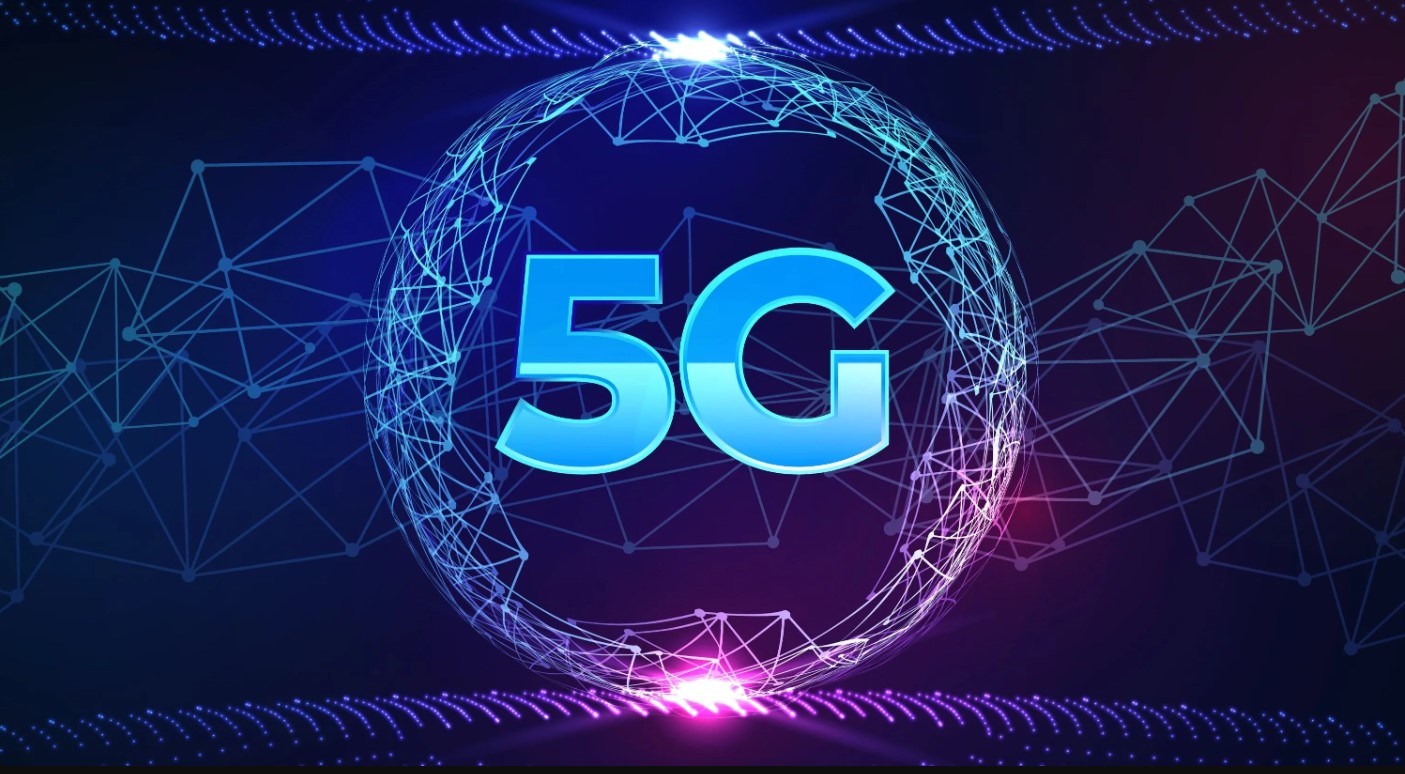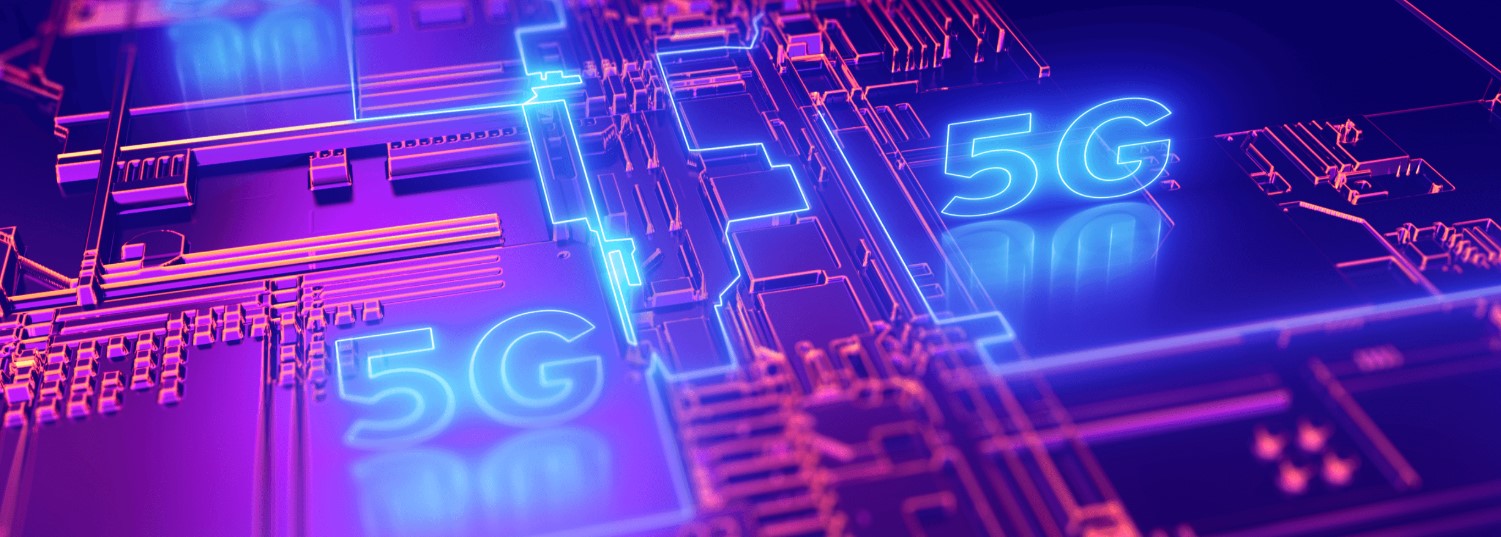The Transformative Power of 5G Technology
January 3, 2025

The advent of 5G technology marks a significant leap forward in mobile communication, promising faster speeds, lower latency, and enhanced connectivity. Beyond just faster internet on smartphones, 5G is set to transform industries and enable a myriad of new applications. Let’s explore how 5G is reshaping various sectors, its implications for the Internet of Things (IoT), and what enterprises need to consider as they prepare for this transformative rollout.
- Healthcare
- Manufacturing
- Transportation and Logistics
- Entertainment and Media
- Smart Cities
- Enhanced Connectivity
- Low Latency
- Energy Efficiency
- Assess Current Infrastructure
- Identify Use Cases
- Invest in Training and Development
- Engage with 5G Providers
- Focus on Security
How 5G is Transforming Industries and Enabling New Applications
Healthcare:
5G technology is revolutionizing healthcare through telemedicine and remote monitoring. With high-speed connectivity, healthcare providers can conduct real-time consultations, access patient data quickly, and even perform remote surgeries using robotics. The ability to transfer large amounts of data, such as high-resolution medical imaging, in real-time enhances diagnostic accuracy and patient care.
Manufacturing
In the manufacturing sector, 5G enables the creation of smart factories. By connecting machinery, sensors, and devices, manufacturers can collect and analyze data in real-time, optimizing production processes and minimizing downtime. Predictive maintenance becomes possible, reducing costs and improving efficiency.
Transportation and Logistics
5G plays a pivotal role in the development of autonomous vehicles and smart transportation systems. Real-time data exchange between vehicles, infrastructure, and traffic management systems enhances safety and efficiency. In logistics, improved tracking and monitoring capabilities streamline supply chain operations, ensuring timely deliveries and reduced operational costs.
Entertainment and Media
The entertainment industry is set to benefit from 5G’s ability to deliver high-quality content without buffering. Streaming services can provide 4K and even 8K video experiences seamlessly. Additionally, augmented reality (AR) and virtual reality (VR) applications can thrive, offering immersive experiences that were previously limited by bandwidth constraints.
Smart Cities
5G technology is integral to the development of smart cities. From traffic management systems that optimize flow to smart waste management solutions that monitor bin levels, the potential applications are vast. Enhanced connectivity allows for better resource management and improved quality of life for residents.

Implications of 5G for IoT and Connected Devices
Enhanced Connectivity
5G significantly expands the capacity for connected devices, supporting up to one million devices per square kilometer. This capability is vital for the growth of IoT, where everyday objects—from appliances to vehicles—become interconnected, allowing for seamless communication and data exchange.
Low Latency
One of the standout features of 5G is its ultra-low latency, which is crucial for applications requiring real-time responses, such as remote surgery or autonomous driving. This immediacy opens doors to innovative solutions in industries that rely on split-second decisions.
Energy Efficiency
5G networks are designed to be more energy-efficient than their predecessors, which is particularly important for IoT devices that rely on battery power. This efficiency extends the lifespan of devices, reducing the need for frequent battery replacements and contributing to sustainability efforts.

Preparing for the Rollout of 5G Technology in Enterprises
Assess Current Infrastructure
Enterprises need to evaluate their existing network infrastructure to determine its readiness for 5G. This includes examining current bandwidth, latency, and device compatibility. Upgrading infrastructure may be necessary to fully leverage the benefits of 5G.
Identify Use Cases
Businesses should identify specific use cases that 5G can enhance. Whether it’s improving customer engagement through AR applications or optimizing operations through IoT integrations, having clear objectives will guide investments and strategies.
Invest in Training and Development
As 5G technology evolves, so too must the skill sets of employees. Providing training on 5G applications, data analysis, and IoT technologies will empower teams to utilize these innovations effectively.
Engage with 5G Providers
Collaborating with telecom providers is essential for successful 5G implementation. Enterprises should stay informed about the rollout timeline in their region and understand the services offered by providers, including support for IoT solutions and network management.
Focus on Security
With increased connectivity comes heightened security risks. Enterprises must prioritize cybersecurity measures to protect sensitive data and maintain compliance. Implementing robust security protocols will safeguard against potential vulnerabilities that arise from the widespread adoption of connected devices.
5G technology is poised to be a game-changer, transforming industries and enabling innovations that were once the stuff of science fiction. Its impact on IoT and connected devices will further revolutionize how we interact with technology daily. As enterprises prepare for the rollout of 5G, understanding its implications and developing a strategic approach will be crucial to harnessing its full potential. Embracing this new era of connectivity will not only enhance operational efficiency but also pave the way for groundbreaking applications that can reshape our future.
Have Any Question?
Call or email Cocha. We can help with your cybersecurity needs!
- (281) 607-0616
- info@cochatechnology.com




